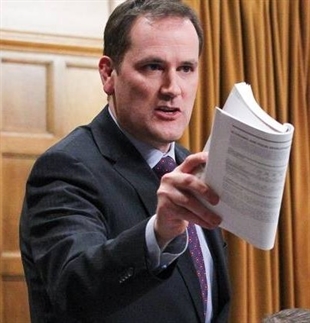
Dan Albas a Member of Parliament.
Image Credit: SUBMITTED/Dan Albas
July 06, 2019 - 12:00 PM
The British Columbia Utilities Commission (BCUC) is a provincial agency and is currently conducting a limited review into gasoline pricing in British Columbia.
This review will some federal implications and I believe this will be of interest to many citizens in our region.
The review was ordered by the BC NDP Provincial Government earlier this year after a public outcry on high gas prices at the pump and the April 1st increase to the carbon tax.
The reason the review is limited is because the BC NDP, in the terms of reference to the BCUC, made one very important limitation:
“The commission (BCUC) may not inquire into the effects of provincial enactments or policy on gasoline and diesel prices in British Columbia,”
In other words provincial BC NDP energy policy and related taxation cannot be included in this review.
Early work from the BCUC (as reported by Mr. Rob Shaw of the Vancouver Sun) indicates that the National Energy Board (NEB) stated that the “refining margin on regular gasoline in Vancouver in April averaged 52.1 cents per litre”
To put that figure into context , that is approximately double the national average.
However, here is another interesting fact:
In the lower mainland, the total of the transit tax, provincial taxes including the carbon tax, federal excise tax, and GST add 52 cents per litre.
So the combined governments take in taxes is roughly equal to the oil companies refining margins.
That amount would be less here in the Central Okanagan- Similkameen- Nicola as there is no local transit tax.
One other interesting consideration relates to the Trans Mountain pipeline (TMX).
Suncor has stated that pipeline capacity for refined products, that includes gasoline and diesel, has decreased by 30-36 million litres per month.
This in turn means this gasoline must be shipped by either rail or truck, which is more costly.
Parkland Fuel, the operator of the refinery in Burnaby, have also stated that because the TMX pipeline is at capacity, often carrying other products (diluted bitumen is one example), they have to pay a premium to secure supply capacity from other shippers.
This is relevant as it is some of the first quantifiable evidence that the lack of available capacity for gasoline & diesel in the TMX pipeline is playing a role in creating higher gas prices at BC pumps.
As I wrote in my May 1st, 2019 report, the reason for the lack of capacity is due to the fact that the TMX pipeline must carry a range of different oil products ranging from gasoline to diluted bitumen.
The expanded new section of the Trans-Mountain pipeline (if built) would exclusively carry what is known as “heavy oils,” such as diluted bitumen, allowing the existing section to transport products such as gasoline & diesel to increase supply.
Ironically BC NDP Premier Horgan, who created the BCUC review to “get to the bottom” of high gas prices in BC, opposes the Trans-Mountain pipeline expansion.
My question this week:
How much are you impacted by gasoline prices?
I can be reached at Dan.Albas@parl.gc.ca or call toll free 1-800-665-8711.
News from © iNFOnews, 2019